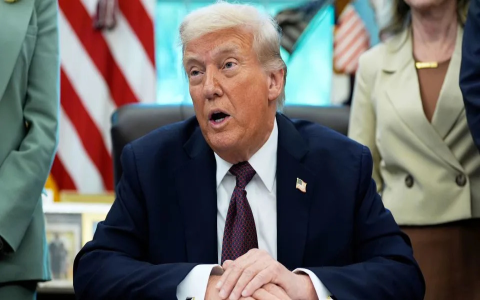# Introduction
Are you ready to take your career to the next level by stepping into a vice president mental health job? This high-impact role is more than just a title—it’s about leadership, innovation, and making a massive difference in behavioral health organizations. In this comprehensive guide, we break down everything you need to know to not only understand what vice president mental health jobs entail but also how to stand out and get hired.
# What Are Vice President Mental Health Jobs?
Vice president mental health jobs are senior leadership roles within healthcare organizations, psychiatric hospitals, or social services agencies. Vice presidents in this field oversee mental health programs, drive policy, lead large teams of clinicians, supervise budgets, and shape overall mental health strategies.
RESPONSIBILITIES INCLUDE:
– Strategic oversight of clinical operations
– Developing and controlling budgets
– Ensuring regulatory compliance
– Building partnerships with external agencies
– Managing and mentoring directors and managers

For example, in large hospitals, vice presidents guide hundreds of staff, influencing care for thousands of clients annually.
# Who Should Pursue Vice President Mental Health Jobs?
The ideal candidate for vice president mental health jobs is someone with a strong clinical background, like psychology or social work, but also significant administrative experience. A master’s or doctoral degree is often expected, along with at least ten years of progressive leadership in mental health settings.
Are you asking yourself if this is your path? According to a 2023 survey by the National Council for Mental Wellbeing, 81 percent of current vice presidents started their careers as clinicians and gradually moved up (SOURCE: National Council for Mental Wellbeing Annual Report 2023).
You need sharp skills in program management, communication, and crisis response. But just as important is a deep passion for mental health advocacy and a vision for systems change.
# What Qualifications Do Employers Seek?
Finding vice president mental health jobs isn’t easy—employers have high standards. Let’s look at the must-haves.
| Requirement | Essential for VP Role? | Added Value |
|---|---|---|
| Master’s Degree in Psychology/Social Work | YES | Doctorate is a big plus |
| 10+ Years Leadership Experience | YES | Cross-state experience helps |
| Licensure (LCSW, LPC, etc.) | PREFERRED | Not always mandatory for corporate settings |
| Data Analytics Skills | PREFERRED | Increasingly vital for decision-making |
According to the U.S. Bureau of Labor Statistics, leadership roles in health services are projected to grow 28 percent between 2021 and 2031—much faster than average (SOURCE: Bureau of Labor Statistics Occupational Outlook Handbook).
# Step-by-Step Guide: How to Land Vice President Mental Health Jobs
Looking to boost your chances? Here is a proven, actionable five-step roadmap for getting hired as a vice president in mental health.
STEP 1: Build Your Clinical Foundation
Earn a relevant advanced degree and get hands-on experience in direct service roles for at least five to seven years.
STEP 2: Move Into Supervision Early
Seek out team lead or program manager roles. The sooner you demonstrate management abilities, the better.
STEP 3: Broaden Your Perspective
Get involved in budget planning, grant writing, and strategic planning projects. Employers want broad skill sets.
STEP 4: Network Relentlessly
Attend conferences, join professional associations like the American Psychological Association, and leverage LinkedIn for leadership groups.
STEP 5: Tailor Your Applications
Customize each resume and cover letter to align with the job’s language. Don’t shy away from hiring a career coach for interview prep.
From our team’s experience supporting behavioral health executives, focusing on unique leadership stories during interviews can give you a big advantage.
# Opportunities and Challenges: Real-World Examples
Every major hospital or behavioral health network shapes the VP role slightly differently. For instance, a vice president at a major urban hospital might oversee crisis intervention and emergency services, whereas one at a nonprofit could champion community outreach and telehealth expansion.
However, challenges are real: leadership burnout, regulatory changes, and funding shortfalls are frequent hurdles. Interestingly, organizations that invest in data-driven outcomes reporting see higher staff retention and better patient results.
# Warning: Common Mistakes to Avoid
BE CAREFUL
Many applicants make the mistake of focusing solely on their clinical expertise, neglecting the importance of administrative credentials. Another frequent pitfall is underestimating the pace of change in mental health technology—staying current is mandatory.
Avoid these traps:
– Overlooking the value of cross-sector partnerships
– Not emphasizing measurable program outcomes
– Failing to develop public speaking and media skills
# Essential Checklist for Aspiring Vice Presidents in Mental Health
Use this checklist to prep for your next vice president mental health job search:
-DEMONSTRATE a solid mix of clinical and administrative experience
-OBTAIN advanced degrees relevant to mental health
-HIGHLIGHT your leadership in budget management and strategy
-NETWORK with leading professionals and attend industry events
-TAILOR your application materials to each position
-MASTER data analysis and outcome measurement
-KEEP UP with advancements in telehealth and digital mental health
-AVOID burnout by investing in ongoing self-care practices
# Conclusion
Landing vice president mental health jobs is tough, but with intentional skill-building, a sharp application strategy, and a well-rounded leadership story, you can position yourself for these rewarding and in-demand positions. Whether your goal is to transform a division, lead a nonprofit, or innovate hospital systems, this guide sets you on the right path.



















